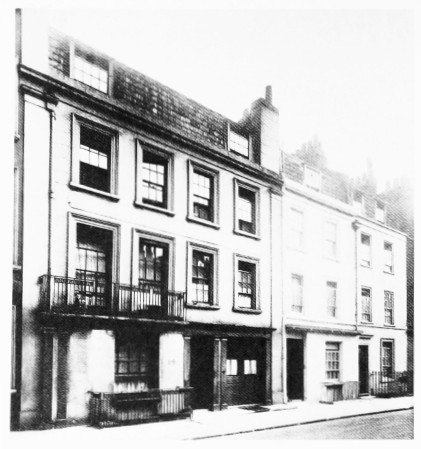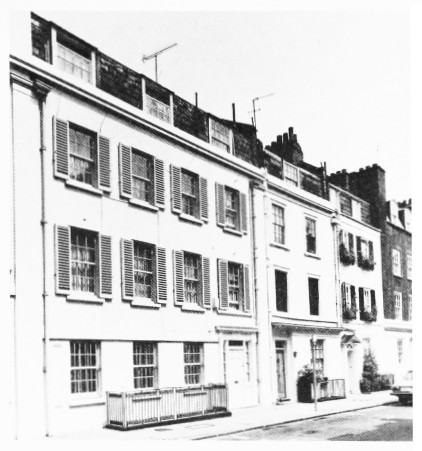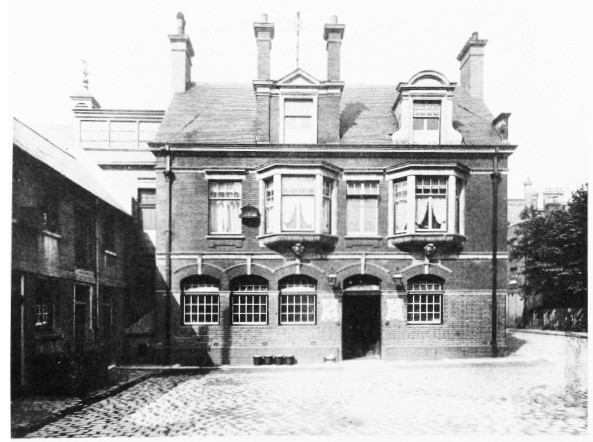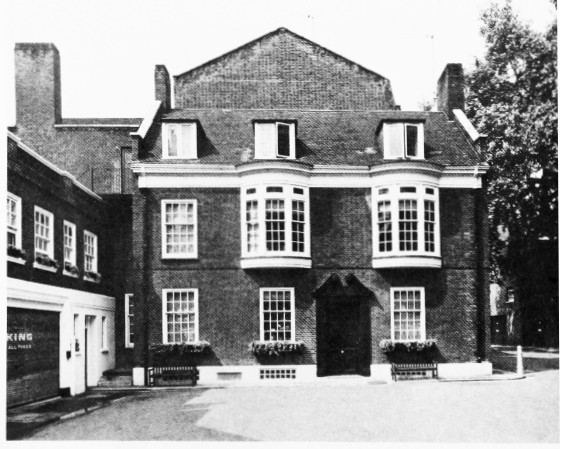Survey of London: Volume 39, the Grosvenor Estate in Mayfair, Part 1 (General History). Originally published by London County Council, London, 1977.
This free content was digitised by double rekeying. All rights reserved.
'Plate 50: Mews houses and conversions', in Survey of London: Volume 39, the Grosvenor Estate in Mayfair, Part 1 (General History), ed. F H W Sheppard (London, 1977), British History Online https://prod.british-history.ac.uk/survey-london/vol39/pt1/plate-50 [accessed 25 April 2025].
'Plate 50: Mews houses and conversions', in Survey of London: Volume 39, the Grosvenor Estate in Mayfair, Part 1 (General History). Edited by F H W Sheppard (London, 1977), British History Online, accessed April 25, 2025, https://prod.british-history.ac.uk/survey-london/vol39/pt1/plate-50.
"Plate 50: Mews houses and conversions". Survey of London: Volume 39, the Grosvenor Estate in Mayfair, Part 1 (General History). Ed. F H W Sheppard (London, 1977), British History Online. Web. 25 April 2025. https://prod.british-history.ac.uk/survey-london/vol39/pt1/plate-50.
In this section
Mews Houses and Conversions
a (left). Nos. 10–14 (even) Culross Street (right to left), in 1926 and 1976, before and after alterations of 1926–7, mainly by Etchells and Pringle

Mews houses and conversions
(left). Nos. 10–14 (even) Culross Street (right to left), in 1926 and 1976, before and after alterations of 1926–7, mainly by Etchells and Pringle
b (right). Nos. 10–14 (even) Culross Street (right to left), in 1926 and 1976, before and after alterations of 1926–7, mainly by Etchells and Pringle

Mews houses and conversions
(right). Nos. 10–14 (even) Culross Street (right to left), in 1926 and 1976, before and after alterations of 1926–7, mainly by Etchells and Pringle
c (below left). No. 3 Lees Place (stables to No. 23 Grosvenor Square) in 1890 before conversion.

Mews houses and conversions
(below left). No. 3 Lees Place (stables to No. 23 Grosvenor Square) in 1890 before conversion.
J. T. Wimpperis and T. N. Arber, architects, 1889
d. (below right). No. 3 Lees Place in 1976 after conversion.

Mews houses and conversions
(below right). No. 3 Lees Place in 1976 after conversion.
H. Douglas Kidd, architect, 1932